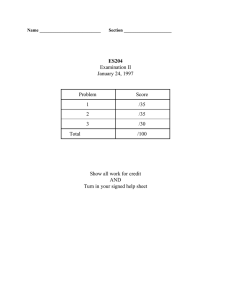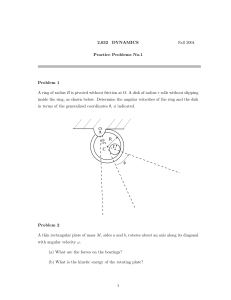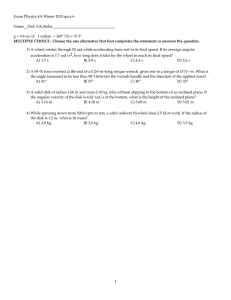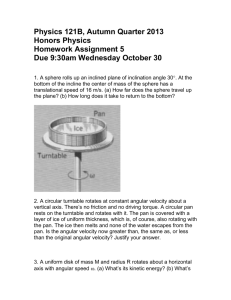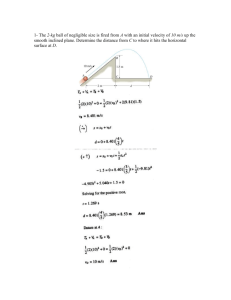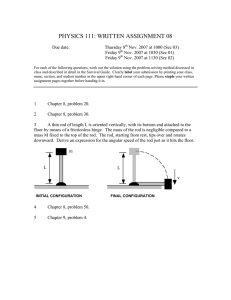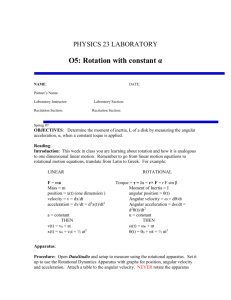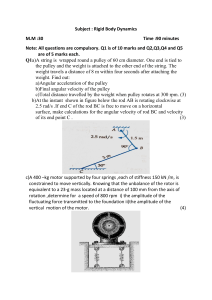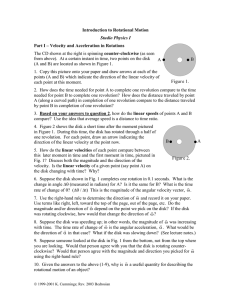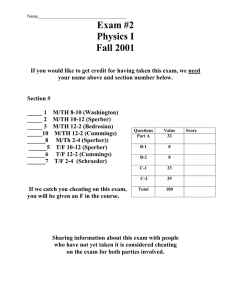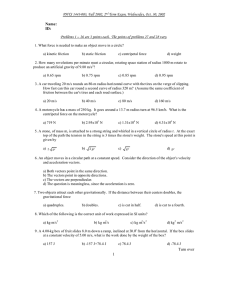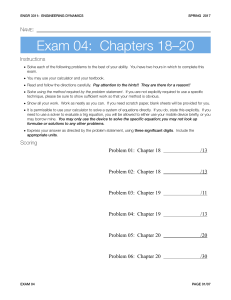Document 13667823
advertisement
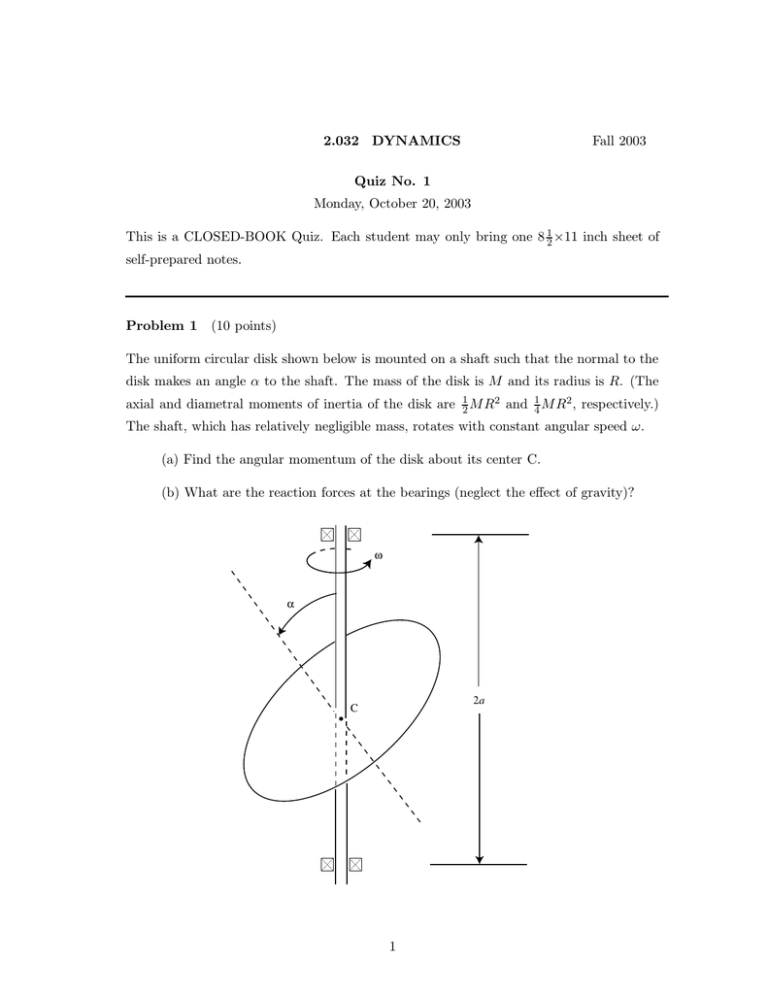
Fall 2003 2.032 DYNAMICS Quiz No. 1 Monday, October 20, 2003 This is a CLOSED-BOOK Quiz. Each student may only bring one 8 21 ×11 inch sheet of self-prepared notes. Problem 1 (10 points) The uniform circular disk shown below is mounted on a shaft such that the normal to the disk makes an angle � to the shaft. The mass of the disk is M and its radius is R. (The axial and diametral moments of inertia of the disk are 21 M R2 and 14 M R2 , respectively.) The shaft, which has relatively negligible mass, rotates with constant angular speed �. (a) Find the angular momentum of the disk about its center C. (b) What are the reaction forces at the bearings (neglect the effect of gravity)? � � 2a C 1 Problem 2 (10 points) (adapted from Doctoral Qualifying Exam 2003) A rod of mass m, length 2a and centroidal moment of inertia 31 ma2 is dropped onto the edge of a table as shown below. The rod is horizontal, has zero angular velocity and has downward velocity V at the moment just before touching the table. (a) Determine in terms of V the angular velocity of the rod just after impact, assuming that energy is conserved in the collision. (b) Under the same assumptions as in (a) above, determine the velocity just after impact of the end of the rod that touched the table. Does your result seem reasonable? Explain. 2a g 2 Problem 3 (10 points) (adapted from Ginsberg, 4.20) A disk of radius r rolls without slipping over the ground such that the angle of tilt � is constant. The center C follows a horizontal circular path of radius R at constant speed V . Derive an expression for the angular velocity of the disk. R � C 3
